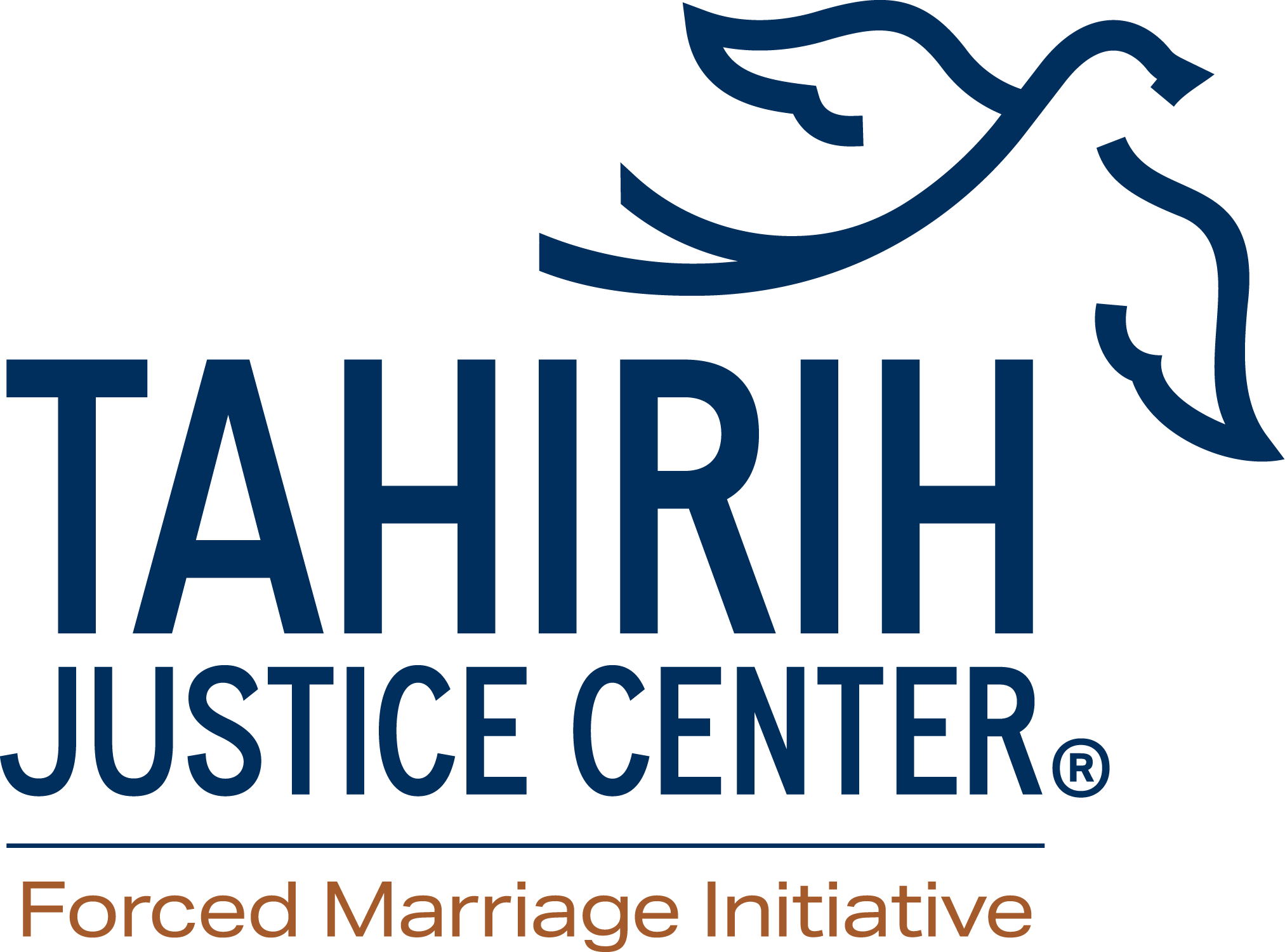Forced Marriage in the U.S.
Forced marriage is happening in the United States. More than 500 professionals from 47 states responded to Tahirih Justice Center’s 2011 National Survey on Forced Marriage. Respondents included domestic violence advocates, shelter employees, legal aid lawyers, social workers, teachers, counselors, police, child protection authorities, and medical and mental health professionals. Individuals forced to marry are often U.S. citizens, and their spouses may reside in this country or may be brought here from overseas. In other cases, an individual living here is forced to travel and marry overseas. After the marriage, the individual may be forced to remain abroad or allowed to travel back to the United States. Our 2011 National Survey found that forced marriage is happening in families and communities from at least 56 different countries. The National Survey also found that forced marriage is occurring among families of many different religious backgrounds, including individuals from Muslim, Christian, Hindu, Sikh, Buddhist, Jewish, and other faith traditions.
Protections for Individuals Facing Forced Marriage
Currently, there are limited protections for individuals fleeing forced marriage in the United States, and protections vary from state to state. If a minor is threatened with or subjected to forced marriage, state child protection laws may apply, but often child protection authorities are unsure of what action is best for the individual at risk, or deem the proposed marriage as outside the definition of abuse and neglect. In some cases, a court may be able to offer partial protection to an individual facing forced marriage (for example, through issuing a protection order), but these types of remedies may be difficult to obtain, and intimidating for the individual at risk. When an individual is taken overseas for a forced marriage, U.S. federal authorities may get involved, but often there are limits on what they can do to assist an individual at risk (particularly if that person is a minor). Tahirih and our partners are working to improve U.S. laws and policies regarding forced marriage, and have put forward a Platform of Policy Recommendations in consultation with advocates, survivors, and impacted communities. This platform prioritizes creation of an action plan and aims to connect federal and state agencies, identify gaps and needs, and drive and measure progress toward specific goals, including:
- Increase understanding of forced marriage as a form of family violence and abuse, and build the capacity of existing programs to assist victims.
- Dedicate funding for new forced marriage-specific resources and programs.
- Ensure access to civil protection orders for forced marriage victims.
- Strengthen state laws on the age of consent to marry.
- Implement safeguards in federal immigration laws for marriage-based visas.
- Ensure that criminal justice options are available to forced marriage victims.
In 2021 Tahirih, in collaboration with members of the National Forced Marriage Working Group, produced a Framework for Addressing Forced and Child Marriage in the U.S. National Action Plan to End Gender Based Violence, the first document of its kind. The framework charts a comprehensive path forward on the issue of forced and child marriage in the U.S., calling for an intersectional approach to supporting survivors rooted in anti-oppression and anti-racism, increased awareness among service providers, advocates, and policy makers as well as a coordinated whole of government response, dedicated funding streams to enhance programs and services, and support for research and policy change at the state and federal level. The Framework was produced for the White House’s Gender Policy Council, to advise their work in creating a National Action Plan to End Gender Based Violence.
While 9 states and 2 additional U.S. jurisdiction currently have criminal laws specifically addressing forced marriage, Tahirih’s Forced Marriage Initiative believes strongly that any legal changes—especially criminalization—must only be made after thorough consultation with survivors, advocates, and community-based organizations to avoid unintended consequences for victims.



